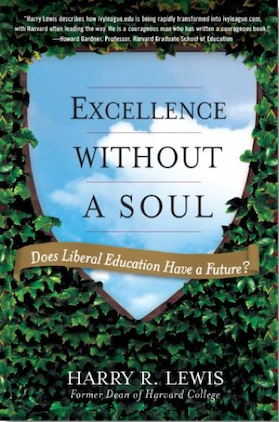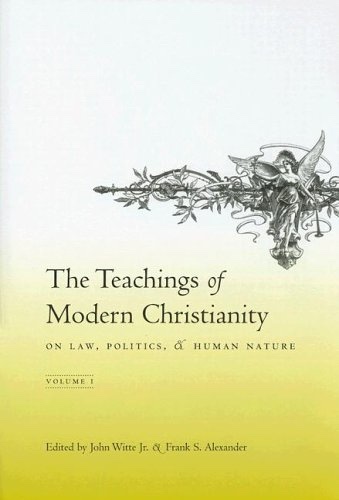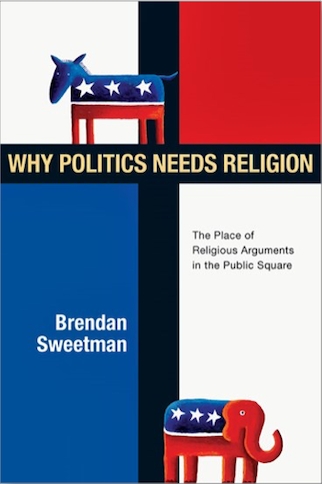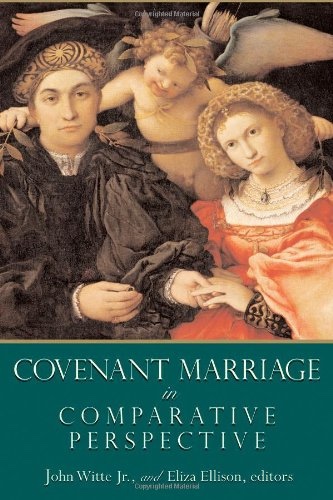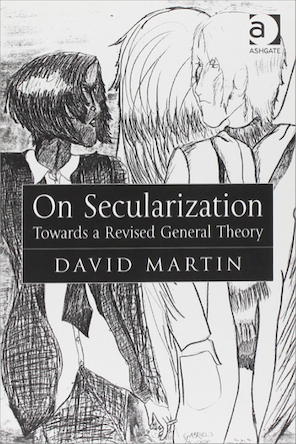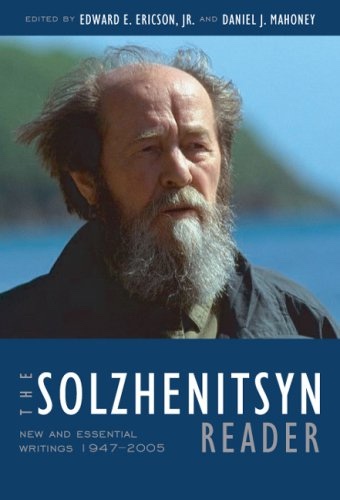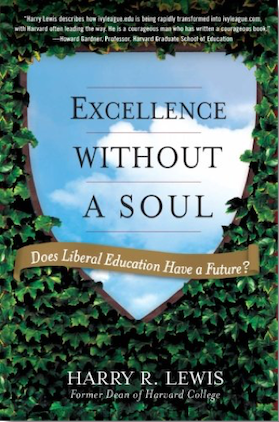PREVIEW
The player for this Journal volume is only available to current members or listeners with a legacy account. If you have an active membership, log in here. If you’d like to become a member — with access to all our audio programs — sign up here.
Guests heard on Volume 84
Harry L. Lewis, author of Excellence Without a Soul: How a Great University Forgot Education, on higher education’s amnesia about its purposes, and how that shortchanges students (Archive Feature available)
Nicholas Wolterstorff, author of “Abraham Kuyper (1837-1920)” published in the anthology The Teachings of Modern Christianity on Law, Politics, and Human Nature, Vol. 1, on Abraham Kuyper (1837-1927), the French Revolution, worldviews, and “sphere sovereignty”
Brendan Sweetman, author of Why Politics Needs Religion: The Place of Religious Arguments in the Public Square, on why religious worldviews should not be excluded from political life
James Turner Johnson, author of “Marriage As Covenant in Early Protestant Thought: Its Development and Implications,” published in the anthology Covenant Marriage in Comparative Perspective, on the development of Christian thought about the meaning of marriage
David Martin, author of On Secularization: Towards a Revised General Theory, on how the 1960s replayed themes of the 1890s and 1930s
Edward Ericson, Jr., editor of The Solzhenitsyn Reader: New and Essential Writings, 1947-2005, on Aleksandr Solzhenitsyn’s beginnings and legacy
Bonus: Harry L. Lewis, author of Excellence Without a Soul: How a Great University Forgot Education, on how colleges and universities can help students grow into adulthood
Related reading and listening
- The life of the city in poetry — FROM VOL. 1 Ken Myers talks with W. H. Auden’s biographer and literary executor, Edward Mendelson, about political and social themes in Auden’s poetry. (7 minutes)
- Lex Rex, or Vox Populi Lex, or Rex Lex? — Law professor Li-ann Thio on the theological roots of belief in the rule of law
- The theological significance of current events — FROM VOL. 65 George Marsden discusses how Jonathan Edwards (1703–1758) understood world history and the American experience. (14 minutes)
- Countering American apathy toward history — FROM VOL. 124 Historian John Fea discusses how American and Protestant individualism continues to influence our orientation toward the past. (22 minutes)
- Privacy and a right to kill — FROM VOL. 60 Russell Hittinger explains the legal history behind the “right to privacy” and how it was used in landmark cases involving abortion and physician-assisted suicide. (33 minutes)
- Faith that is more than “chemically pure” — Romano Guardini on sustaining a Christian understanding of all of Creation
- Virgil and purposeful history — In this lecture from June 2019, classical educator Louis Markos examines Book II of The Aeneid to argue that Virgil had an eschatological view of history. (68 minutes)
- Counterpoint as a “spirited discussion” — In this essay, John Ahern explains the beauty and order of counterpoint, the accumulation of multiple melodies that come together in a harmonious whole. (20 minutes)
- The Bully Pulpit: Presidential Rhetoric and True Leadership — Elvin Lim talks about the decline of the content of presidential rhetoric and its consequences to democracy. (49 minutes)
- A metaphysics of realism, relationality, and personalism — John Milbank gives a survey and critique of the efforts of 20th and 21st century theologians to articulate a Trinitarian ontology that reflects reality and counters secularization. (61 minutes)
- Books worthy of a lifetime of encounters — FROM VOL. 69 Daniel Ritchie discusses why great books programs survive mainly in Christian institutions while declining in secular ones. (13 minutes)
- Personhood, limits, and academic vocation — FROM VOL. 39 Marion Montgomery (1934–2002) offers a deep critique of the relationship of the academy to its community in an effort to diagnose how higher education has lost its way. (13 minutes)
- What higher education forgot — FROM VOL. 84 Harry L. Lewis discusses higher education’s amnesia about its purposes, and how that shortchanges students. (19 minutes)
- A Christian philosophy of integrated education — FROM VOL. 61 Michael L. Peterson discusses how Christianity could inform society’s understandings of education and human nature. (8 minutes)
- Education for human flourishing — Co-authors Paul Spears and Steven Loomis argue that Christians should foster education that does justice to humans in our fullness of being. (23 minutes)
- The social irrelevance of secular higher education — FROM VOL. 85 Professor C. John Sommerville describes the increasingly marginal influence of universities in our society, and why they seem to be of no substantive relevance to people outside the school. (13 minutes)
- The history of Christianity and higher education — FROM VOL. 50 In tracing Christianity’s relationship to the academy, Arthur F. Holmes points to Augustine as one of the first to embrace higher learning, believing God’s ordered creation to be open to study by the rational mind of man. (9 minutes)
- Prudence in politics — FROM VOL. 146
Henry T. Edmondson, III talks about Flannery O’Connor’s understanding of political life, which was influenced by a range of thinkers including Aristotle, Thomas Aquinas, Eric Voegelin, and Russell Kirk. (19 minutes)
- Only a dying civilization neglects its dead — Historian Dermot Quinn discusses the work of fellow historian Christopher Dawson (1889–1970). (15 minutes)
- Christopher Dawson: Chronicler of Christendom’s Rise and Fall — Dermot Quinn discusses historian Christopher Dawson’s meta-historical perspective and his wisdom about what makes cultures healthy or unhealthy. (54 minutes)
- Insisting that political leaders are incapable of obeying Christ — Oliver O’Donovan on the unintended consequences of the First Amendment to the U.S. Constitution.
- An unwitting agent for the secularization of America — Mark Noll, Nathan Hatch, and George Marsden explain how a prominent Christian Founding Father added momentum to the secularization of America
- From democracy to bureaucracy — Historian John Lukacs on the challenges of living at the End of an Age
- Ideas and historical consequences — Historian John Lukacs (1924–2019) discusses the relationship between institutions and character, popular sentiment versus public opinion, the distinction between patriotism and nationalism, and the very nature of studying history. (36 minutes)
- The historian’s communal role as storyteller — FROM VOL. 127 Historian Christopher Shannon discusses how American academic historical writing presents a grand narrative of progressivism, which it defends by subscribing to an orthodoxy of objective Reason. (21 minutes)
- Three historians on history — FROM VOL. 31
This Archive Feature presents interviews with three historians who discuss changes in historical studies. (33 minutes)
- When is civil disobedience necessary? — Douglas Farrow examines the relation between “the kings of the earth” and the law of Christ, particularly when governmental law is exercised without reference to natural or divine law. (49 minutes)
- The gift of objective reality — Moral philosopher Oliver O’Donovan makes an argument for the consistency of the idea of law when it is conceived in a theological context. (40 minutes)
- Universities as the hosts of reciprocating speech — Robert Jenson on how the Christian understanding of Truth in a personal Word shaped the Western university
- The past as presence, not souvenir — Historian Christopher Lasch on the importance of recognizing our dependence on the past
- “How deep the problems go” — FROM VOL. 103Eric Miller discusses the late historian and social critic Christopher Lasch’s intense commitment to understand the logic of American cultural confusion. (20 minutes)
- The dance of law and freedom — Calvin Stapert on the experience of joyous order in Bach’s music
- The loss of hierarchy and humility in the academy — In interviews from 1999, literature professors Alvin Kernan and Marion Montgomery discuss how culture of the academy — its hyper-democratic posture and its loathing of limits — derails the pursuit of truth. (25 minutes)
- The de(con)struction of the humanities (and of truth) — Historian Gertrude Himmelfarb on the skeptical tendencies of the postmodern academy
- Blest be the ties of language that bind us — Marion Montgomery on the precious gift of words
- Sweetman, Brendan — FROM THE GUEST PAGE: Dr Brendan Sweetman is a teacher, philosopher and writer. From Dublin, Ireland, he is Professor of Philosophy and holds the Sullivan Chair in Philosophy at Rockhurst University, Kansas City, Missouri, USA.
- The academy’s deconstruction of both person and community — Marion Montgomery on cultivating “a deportment of intellect governed by a continuing concern for the truth of things”
- From university to multiversity to demoversity — Alvin Kernan on tectonic shifts in higher education since the 1960s
- Scholarship’s silos and the eclipse of meaning — Paul Tyson on how the modern academy avoids engagement with Reality
- Christ, the key to human meaning — Gil Bailie on how the coming of Christ affirmed the intelligibility of human history (and why the abandonment of Christ invites unreason)
- An outrageous idea? — In the late 1990s, George M. Marsden and James Tunstead Burtchaell both wrote books examining the claim that it was far-fetched even to imagine that scholarly work could be an expression of Christian claims about reality. (25 minutes)
- Christian scholars and the secularized academy — Mark Noll on why Christian intellectual vitality requires a vision for the universality of Christian truth
- Mars Hill Audio Journal, Volume 159 — FEATURED GUESTS:
Kirk Farney, Andrew Willard Jones, James L. Nolan, Jr., Andrew Kaethler, Peter Ramey, and Kathryn Wehr
- The dispiriting consequences of the commodification of knowledge — Thomas Pfau asks why so many students in universities are regarded only as consumers, who expect a good return on their investment. He also muses on some strategies for “re-spiritualizing” education. (30 minutes)
- Music, passion, and politics — In this interview from 2001, Carson Holloway discusses his book All Shook Up: Music, Passion, and Politics, which summarizes the dramatic chasm between the classical and modern views of political ends and of musical means. (45 minutes)
- Once there was no “secular” — Carlos Eire on the metaphysical assumptions championed in the sixteenth century
- The Christian humanism of Aleksandr Solzhenitsyn — One of the main themes emphasized by these three guests is that Solzhenitsyn was not principally concerned with politics, but with human nature and purpose, understood in light of the Christian account of reality. (39 minutes)
- Parsing the intellectual vocation — Norman Klassen and Jens Zimmermann demonstrate that some form of humanism has always been central to the purposes of higher education, and insist that the recovery of a rich, Christocentric Christian humanism is the only way for the university to recover a coherent purpose. (39 minutes)
- Before Church and State — Andrew Willard Jones challenges some of the conventional paradigms of thinking about political order, arguing that modern assumptions of the relationship between Church and state color how we understand history. (54 minutes
- With Eastern eyes — Paul Valliere and Vigen Guroian discuss questions of law, politics, and human nature from the Orthodox tradition. (34 minutes)
